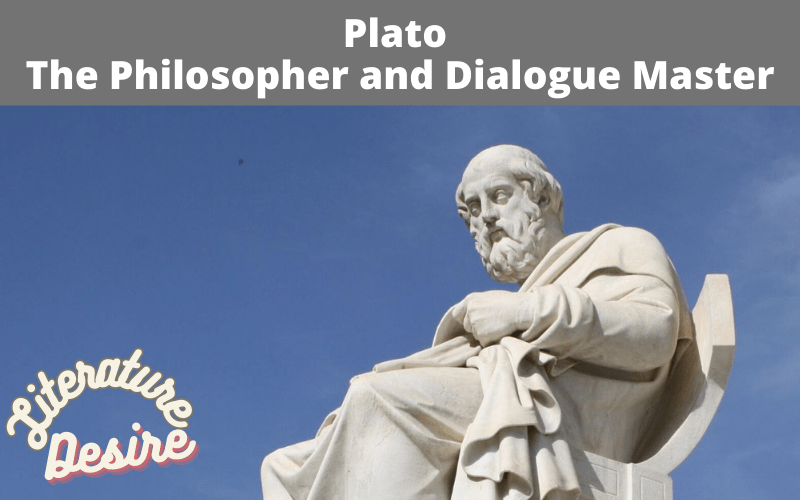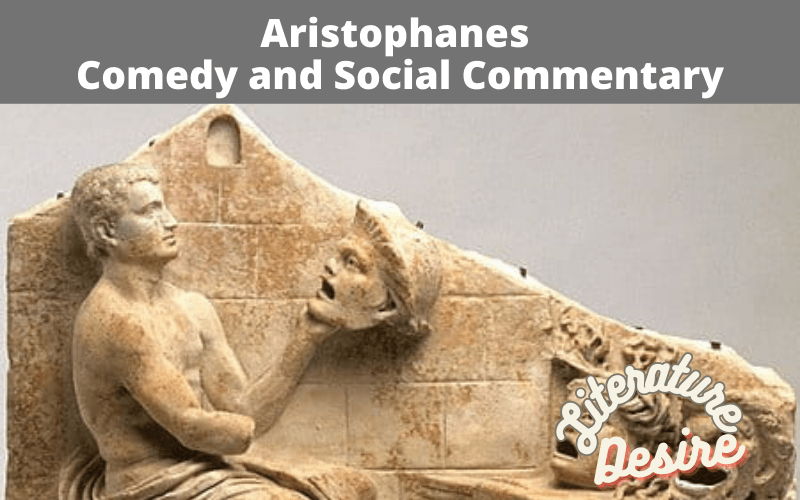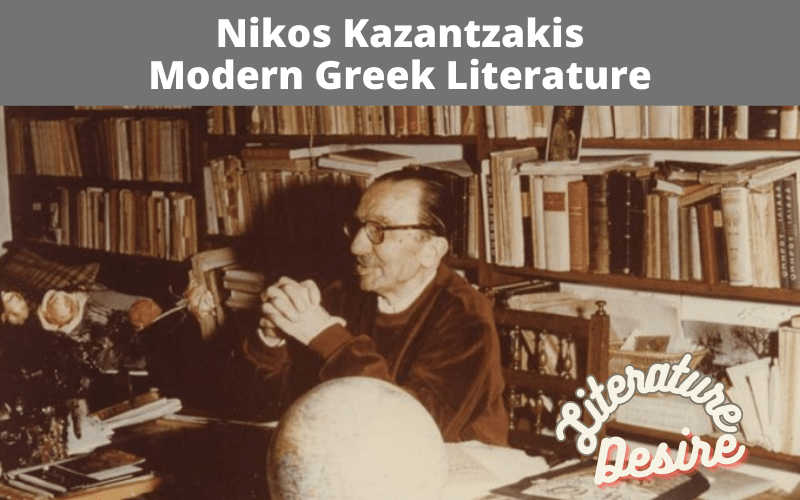In this article, we will explore the lives and works of some famous Greek writers, compare their achievements, and determine who stands out as the most influential and most famous Greek writer.
Greek literature has a rich history dating back to ancient times. Throughout the centuries, countless talented writers have emerged from this cultural hub, each leaving a lasting impact on the literary world.
Advertisement
From epic poets to renowned playwrights, Greece has given birth to extraordinary literary talents that continue to captivate readers worldwide.
Advertisement
Famous Greek Writers: Who Is the Most Famous Greek Writer? A study
Homer: The Master of Epics, Famous Greek Writer

Advertisement
Homer, often hailed as the father of Western literature crafted two of the most iconic epic poems of all time: the Iliad and the Odyssey. These timeless works have laid the foundation for epic storytelling and have influenced countless authors throughout history.
Advertisement
Through vivid descriptions and captivating characters, Homer brings the Trojan War and the arduous journey of Odysseus to life, showcasing his mastery of poetic language.
Aeschylus: The Father of Tragedy

Aeschylus, another titan of Greek tragedy, is widely regarded as the father of the genre. His plays, such as Prometheus Bound and The Oresteia, pioneered the use of multiple characters and dramatic conflicts.
Aeschylus’s works explored themes of justice, morality, and the nature of the gods. His contributions laid the foundation for the development of tragedy in Greek theater.
Sophocles: Master of the Tragic Hero, Famous Greek Writer
Sophocles, another legendary playwright, is renowned for his timeless tragedies that delve into the complexities of human emotions.
Among his notable works is Antigone and Oedipus Rex, a tragic play that explores fate, free will, and the nature of identity.
Sophocles’s skillful character development and exploration of moral dilemmas solidified his place as one of the greatest Greek writers.
Euripides: Provocative and Thought-Provoking

Euripides, known for his provocative and unconventional approach, challenged traditional conventions in Greek drama. His plays often depicted flawed characters and explored social and political issues.
Medea, one of his most famous works, portrays the complexities of revenge and the plight of women in ancient society. Euripides’ ability to tackle controversial topics and his innovative storytelling techniques make him a standout among his peers.
Sappho: The Poetess of Love and Longing

Sappho, one of the few female Greek writers whose work has survived, is celebrated for her lyric poetry. Her verses, filled with themes of love, desire, and beauty, have captivated readers for centuries.
Sappho’s exquisite use of imagery and emotional depth continue to resonate with modern audiences, cementing her status as a literary icon.
Plato: The Philosopher and Dialogue Master

While primarily known as a philosopher, Plato’s literary contributions cannot be overlooked. Through his dialogues, Plato not only explored complex philosophical concepts but also presented them in a captivating narrative form.
His most famous work, The Republic, offers a profound exploration of justice, politics, and the ideal society. Plato’s ability to combine philosophy with engaging storytelling sets him apart from other Greek writers.
Herodotus: The Father of History

Herodotus, often referred to as the father of history, pioneered the genre of historical writing.
His monumental work, The Histories, provides a detailed account of the Greco-Persian Wars and serves as a valuable source for understanding ancient civilizations.
Herodotus’s meticulous research, vivid descriptions, and engaging storytelling make his writings both informative and entertaining.
Thucydides: Analytical Historian

Thucydides, a contemporary of Herodotus, approached history from a different perspective. His work, History of the Peloponnesian War, stands as a meticulous analysis of the conflict between Athens and Sparta.
Thucydides focused on providing an objective account of events, relying on firsthand testimonies and avoiding the mythical elements often found in earlier historical works.
Aristophanes: Comedy and Social Commentary

Aristophanes, the master of ancient Greek comedy, used satire and humor to comment on contemporary society and politics. His plays, such as Lysistrata and The Clouds, exposed the follies and vices of Athenian society.
Aristophanes’s witty dialogue, clever wordplay, and sharp social commentary made him a favorite among audiences of his time and continue to entertain readers today.
Nikos Kazantzakis: Modern Greek Literature

Moving into the realm of Modern Greek literature, Nikos Kazantzakis emerges as one of the most prominent figures. His novel Zorba the Greek gained international acclaim, depicting the free-spirited Zorba and exploring themes of existentialism and the pursuit of happiness.
Kazantzakis’s vivid storytelling and philosophical undertones have made him a beloved writer both in Greece and around the world.
Comparing the Famous Greek Writers
When comparing the famous Greek writers, several factors come into play. Let’s explore some of the key aspects that set them apart:
Narrative Style and Genre
Each of these writers had a unique narrative style and explored different genres. Homer’s epic poems were characterized by their grand storytelling and vivid descriptions, while Sophocles and Euripides excelled in tragic plays that examined the human psyche.
Aeschylus, on the other hand, focused on mythological and moral themes, often portraying conflicts between mortals and gods. Plato and Aristotle contributed to philosophy and literature, blending intellectual discourse with literary artistry.
Themes and Philosophical Underpinnings
The themes explored by these writers varied significantly. Homer’s epics delved into heroism, honor, and the complexities of war. Sophocles and Euripides explored human emotions, morality, and the consequences of actions.
Aeschylus examined justice, divine intervention, and the nature of fate. Plato and Aristotle, being philosophers, incorporated their philosophical ideas into their literary works, touching on topics like ethics, metaphysics, and the ideal society.
Impact and Enduring Legacy
The impact and enduring legacy of these writers are significant in the literary world.
Homer’s epics continue to inspire and influence storytellers even in contemporary literature, while the tragedies of Sophocles, Aeschylus, and Euripides are still performed and studied worldwide.
Plato’s philosophical dialogues shaped Western philosophy, and Aristotle’s literary theories continue to be foundational in the study of literature.
The Profound Impact of Greek Writers
The contributions of these famous Greek writers extend far beyond their individual works. They have collectively shaped the course of literature, influencing subsequent generations of authors and readers alike.
The themes, storytelling techniques, and philosophical musings found in Greek literature have permeated various literary traditions and continue to inspire contemporary works.
Conclusion
Greek literature stands as a testament to the extraordinary talent and creativity of its famous writers. Through their works, they have gifted us with stories that illuminate the human condition, provoke introspection, and ignite our imagination.
The world of Greek literature continues to inspire, educate, and entertain readers, showcasing the profound impact of these literary geniuses.
As we delve into the realms of Homer, Euripides, Plato, and their contemporaries, we embark on a transformative journey through time, experiencing the magic and enduring legacy of Greek literature.
Frequently Asked Questions
Among the famous Greek writers, Homer stands out as the most renowned. His epic poems, the Iliad and the Odyssey, have become literary classics that have been widely read and studied for centuries.
Absolutely! The works of Greek writers had a profound influence on later literature across different cultures. Greek tragedy, for example, inspired the development of theater in ancient Rome and continues to shape modern drama.
Many of the famous Greek writers achieved recognition and success during their lifetimes. Their works were performed in theaters, and they enjoyed fame and admiration for their literary contributions.
Yes, many translations and adaptations of the works of Greek writers are available today, allowing readers to experience the power and beauty of their narratives. These translations ensure that their works continue to be accessible and appreciated by audiences worldwide.
Euripides challenged traditional conventions in Greek drama by presenting flawed characters and tackling controversial social and political issues. His plays, such as *Medea*, provoked thought and discussion, pushing the boundaries of the genre.
Plato’s contribution to literature lies in his use of dialogue to convey complex philosophical concepts. His dialogues, most notably *The Republic*, combine philosophy with engaging storytelling, making his works both intellectually stimulating and accessible to a wide audience.
Greek literature tackles universal themes and explores the depths of human experience, making it relatable and thought-provoking for readers of any era.


